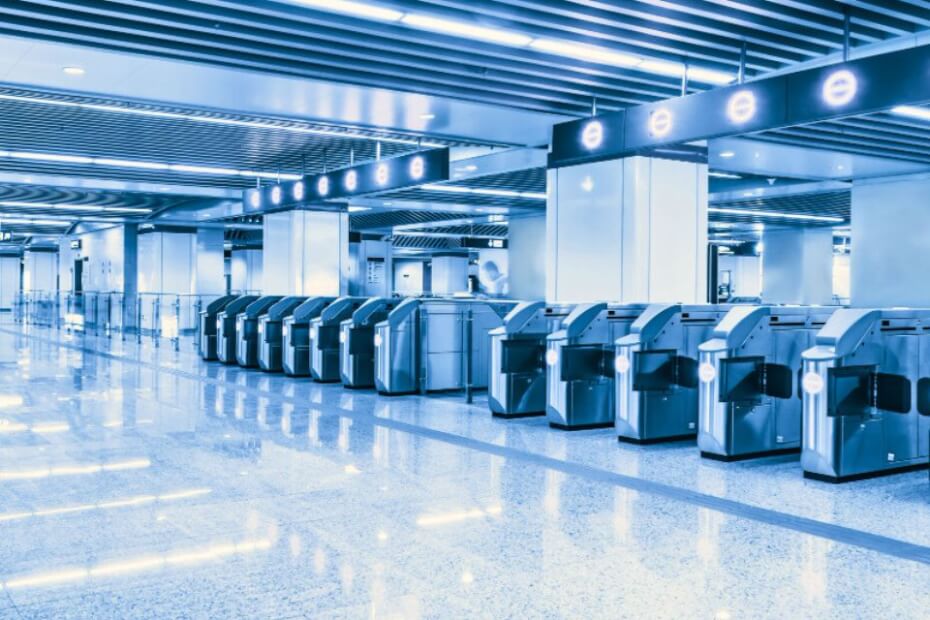
The European Union’s (EU’s) Entry/Exit System (EES) has raised growing concerns in the United Kingdom (UK) and France due to expected delays.
French Transport Minister Patrice Vergriete said the EU’s external borders face “serious operational problems,” according to a report by The Connexion.
“I fear problems,” he said during a conference for the aviation industry federation on 23 May.
Vergriete added, “We are aware of the risk in terms of passenger fluidity. It is a challenge, and we must not get this wrong.”
The minister suggested delaying the EES rollout could be beneficial. However, he also admitted it would be “difficult to obtain” from the European Commission.
The EU’s EES system will replace manual stamping of passports at its external borders.
Instead, the EES will record the entry and exit of non-EU travelers via biometric data, such as facial and fingerprint scans.
Transport and travel officials have expressed concerns about the potential long snaking queues and hours-long delays.
During the first visit to the EU, travelers must register their biometric and passport data before a border officer.
The delays are expected to be worse at juxtaposed borders: the Port of Dover in Kent, St. Pancras Station in London, and the Channel Tunnel in Folkestone.
At juxtaposed borders, EU border officers perform immigration checks on EU-bound travelers on UK soil.
The Port of Dover, St. Pancras, and the Channel Tunnel have limited space and would require new infrastructure for kiosks and managing lines.
Paris Olympics in France postpone EES preparations
Vergriete informed French Interior Minister Gérald Darmanin about his EES concerns.
However, Darmanin’s current priority is managing the security challenges of the Paris Olympic Games.
France will host the 2024 Olympic and Paralympic Games from 26 July to 11 August and 28 August to 8 September, respectively.
The Olympics is also why Parisian airports may not be ready for the EES rollout in October or November 2024.
Due to the expected high traffic during the Olympics, airports in the French capital couldn’t do the construction work needed to prepare for the EES.
Meanwhile, Vergriete said he has concerns “about the number of police personnel.”
He is also wary of the “technology, which could face serious operational problems.”
Vergerie added that the delays, lack of security personnel, and unfamiliarity with the new technology could lead to “issues of public order.”
The French Transport Minister had no comment on the EES mobile app. The app is meant to help travelers pre-register ahead of time and away from the borders.
However, according to the French Union of Airports, the EES app under development currently does not take photos or fingerprint scans.
It added that feedback from Swedish airports currently testing it does not look promising.
UK Committees tell government to ask EU to postpone EES rollout
The UK Parliament’s European Scrutiny Committee has similar concerns with the French Transport Minister.
After conducting a months-long inquiry on the EES, the Committee published its findings and recommendations.
According to the Committee, the British government “should aim to have the scheme’s start date reconsidered.”
It should also ask to exempt juxtaposed borders from fingerprint collection and to have a swift rollout of the EES mobile app.
Eurostar CEO Gwendoline Cazenave and UK Minister Tom Pursglove both confirmed that the EES mobile app will not be ready in time for the EES launch in October.
The EU said the EES app will be rolled out to member countries who volunteer to use it as soon as possible.
The Committee also called for more funding for juxtaposed borders and for plans to spread awareness of the EU’s new border check system.
It also ordered an awareness campaign for people crossing the UK borders for the first time to avoid delays.
The UK’s Lords Committee on Justice and Home Affairs had also concluded its inquiry on the new electronic border systems.
This includes the EES, the UK’s new Electronic Travel Authorization (ETA), and its EU equivalent, ETIAS, or European Travel Information and Authorization System.
The Lords Committee said that the “timetable for the implementation of changes at the border is extremely ambitious.”
It stressed that “challenges and delays [are] likely to arise” if the widespread rollout of the UK ETA and EES go live in the EU simultaneously.
The Committee urged the government to use all diplomatic means to persuade the EU to postpone the EES rollout until the mobile app is available.
This is despite UK Transport Minister Guy Opperman revealing the possibility of a six-month soft launch period for the EES implementation.
Eurostar, Channel Tunnel, Port of Dover EES preparations
Getlink, the Channel Tunnel operator, has finished building a new infrastructure and has started installing EES kiosks.
Its new Calais terminal drive-through bay can simultaneously accommodate up to 60 passenger vehicles.
Eurostar said it is installing a total of 49 check-in kiosks and 11 electronic gates (eGates) at St. Pancras Station.
The international rail company will open 18 new kiosks and 11 eGates at Paris Gare du Nord station.
Travelers crossing the Port of Dover will be met by a staff member who will assist them in registering for the EES using a tablet.
Getlink and Eurostar promised that there would be no huge delays at their terminals once the EES is enforced.
Conversely, Dover authorities stated that border check times for EES registration will increase from 45 to 90 seconds to a few minutes or more per person.

